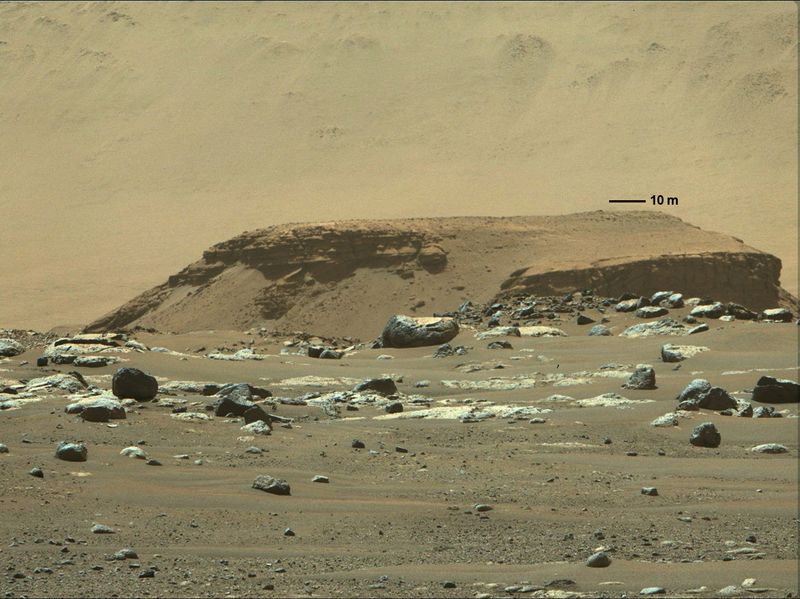By Will Dunham
WASHINGTON (Reuters) - Mars was once a wet world, with abundant bodies of water on its surface. But this changed dramatically billions of years ago, leaving behind the desolate landscape known today. So what happened to the water? Scientists have a new hypothesis.
Researchers said this week that somewhere between about 30% and 99% of it may now be trapped within minerals in the Martian crust, running counter to the long-held notion that it simply was lost into space by escaping through the upper atmosphere.
"We find the majority of Mars' water was lost to the crust. The water was lost by 3 billion years ago, meaning Mars has been the dry planet it is today for the past 3 billion years," said California Institute of Technology PhD candidate Eva Scheller, lead author of the NASA-funded study published on Tuesday in the journal Science.
Early in its history, Mars may have possessed liquid water on its surface approximately equivalent in volume to half of the Atlantic Ocean, enough to have covered the entire planet with water perhaps up to nearly a mile (1.5 km) deep.
Water is made up of one oxygen and two hydrogen atoms. The amount of a hydrogen isotope, or variant, called deuterium present on Mars provided some clues about the water loss. Unlike most hydrogen atoms that have just a single proton within the atomic nucleus, deuterium - or "heavy" hydrogen - boasts a proton and a neutron.
Ordinary hydrogen can escape through the atmosphere into space more readily than deuterium. Water loss through the atmosphere, according to scientists, would leave behind a very large ratio of deuterium compared to ordinary hydrogen. The researchers used a model that simulated the hydrogen isotope composition and water volume of Mars.
"There are three key processes within this model: water input from volcanism, water loss to space and water loss to the crust. Through this model and matching it to our hydrogen isotope data set, we can calculate how much water was lost to space and to crust," Scheller said.
The researchers suggested that a lot of the water did not actually leave the planet, but rather ended up trapped in various minerals that contain water as part of their mineral structure - clays and sulfates in particular.
This trapped water, while apparently plentiful when taken as a whole, may not provide a practical resource for future astronaut missions to Mars.

"The amount of water within a rock or mineral is very small. You would have to heat a lot of rock to release water in an appreciable amount," Scheller said.